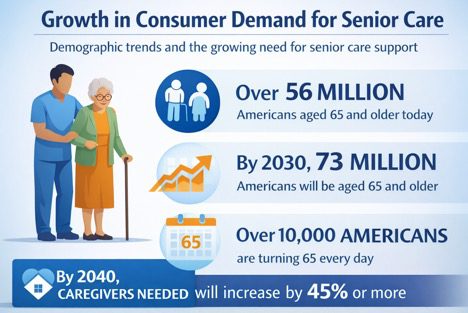
Nippon Curry Franchise System Launch
November 18, 2025
Thermo-S Insulation Franchise System Launch
December 4, 2025
Franchise broker networks like FranChoice and FranNet sit right in the middle of the franchise world: they’re matchmakers between people who want to buy a franchise and brands that want to award them. Used well, they can dramatically accelerate your franchise sales. Used blindly, they can become an expensive, underperforming channel.
Here’s a detailed look at how the model works, what it costs, how deals flow through these networks, and the real positives and negatives for a franchisor.
What franchise brokers actually do
A franchise broker (or “franchise consultant”) is paid by franchisors to introduce qualified candidates and help those candidates navigate the buying process—very much like a real-estate agent connecting buyers and sellers.
Networks such as FranChoice and FranNet operate as umbrella organizations with dozens of individual consultants around the U.S. Those consultants:
-
Advertise and generate leads from people interested in business ownership
-
Interview and pre-qualify candidates (financially, lifestyle, goals)
-
Present a curated list of franchise brands from the network’s portfolio
-
Guide candidates through the research phase and introduce them to franchisors
For the candidate, the service is marketed as free—FranNet and FranChoice both emphasize that they charge no fee to the buyer; they’re compensated by franchisors when a placement occurs.
Behind the scenes, it’s a pure pay-for-performance channel: brokers only get paid when a deal closes.
How the broker model works for a franchisor
From a franchisor’s side, the relationship typically looks like this:
-
You apply to join the network.
The broker group reviews your FDD, unit economics, support structure and brand positioning. They generally prefer brands with clean financials and a track record of successful franchisees. -
You sign a broker agreement.
This sets the referral/commission fee, defines when it’s earned (usually upon receipt of the initial franchise fee and execution of the franchise agreement), and outlines disclosure, compliance and marketing responsibilities. -
You educate the brokers.
You’ll present webinars, host “brand days,” and create one-page profiles so consultants understand your ideal candidate, investment level, territory strategy and story. -
Brokers present your brand to candidates.
When a consultant feels a candidate fits your profile, they make a warm introduction—usually a three-way email or scheduled call. -
You run your standard discovery process.
From that point, you handle qualification calls, FDD review, validation, discovery days and approvals. The broker stays in touch with the candidate as a coach and sounding board. -
Deal closes → commission paid.
When the franchise agreement is signed and the fee is collected, you pay the broker network according to your agreement.
So in practice, broker networks become an outsourced top-of-funnel sales and pre-qualification engine, while you still own the core awarding process.
Commission model: what does it cost?
This is where franchisors feel it most.
Typical commission ranges
Most sources agree that franchise broker commissions are:
-
A percentage of the initial franchise fee, not of ongoing royalties
-
Commonly 30–50% of the fee; sometimes higher for certain networks or brands
-
Some advisory firms note that commissions can range from 25% up to 80% of the fee, depending on the brand, network and deal structure Strategic Franchise Brokers
Given that many modern franchise fees fall in the $30,000–$50,000 range, a broker may receive $15,000–$25,000+ per deal.
Networks like FranChoice and FranNet don’t publish their exact splits publicly, but they follow this same industry pattern: franchisors pay a fixed (or nearly fixed) referral fee per deal; the network then shares that with the individual consultant.
Practical implication for you
If your franchise fee is $40,000 and your commission is 50%, you’re writing a $20,000 check every time a broker-sourced candidate signs.
That’s not inherently bad—especially if your lifetime royalty stream per unit is several hundred thousand dollars—but it’s a sizable customer acquisition cost (CAC) that needs to be modeled.
Positives of working with broker networks
4.1 Access to more and better-qualified candidates
Large networks like FranNet and FranChoice collectively represent hundreds of brands and invest heavily in consumer marketing.
As a result, they see a constant flow of:
-
Corporate executives leaving W-2 roles
-
Career changers with strong resumes
-
Investors looking for multi-unit opportunities
By the time a candidate is introduced to you, they’ve usually:
-
Completed a financial intake
-
Talked through goals and risk tolerance
-
Narrowed down to a few categories
That pre-screening saves your internal team huge amounts of time.
4.2 Pay-for-performance model
You don’t pay retainers or monthly fees; you pay only if a franchise is awarded.
For early-stage brands with limited budgets, this can be attractive compared to:
-
Hiring full-time in-house sales staff
-
Spending big on digital advertising without guaranteed results
4.3 Credibility and education for candidates
Brokers position themselves as neutral advisors. Both FranNet and FranChoice market their process as helping buyers clarify goals, compare models and avoid bad fits.
That can benefit you because:
-
Candidates arrive more educated about franchising in general
-
The broker can reinforce your messaging and help handle fears or objections
-
The process feels less “salesy” to candidates than if everything comes direct from the franchisor
4.4 Geographic reach
A broker network gives you near-instant national coverage. Instead of recruiting a sales rep in every region, you leverage dozens of local consultants who already have relationships in their markets.
4.5 Potentially higher unit performance
Some data suggests that franchisees placed through vetted consultant processes may perform better and survive longer. For example, a study cited by FranNet reported that 92% of their placements were still in business after two years and 85% after five years—a higher survival rate than average new businesses.
That’s not a guarantee for your brand, but it’s one reason franchisors are willing to pay hefty broker fees.
Negatives and risks of using brokers like FranChoice/FranNet
5.1 High cost of acquisition
There’s no way around it: writing a $15k–$25k check per deal is expensive.
Franchise Business Review notes that as brands embraced broker networks, many raised their franchise fees simply to cover broker commissions and stay competitive. If most of your deals come through brokers, you may end up:
-
Increasing fees for every franchisee (even those not placed by brokers)
-
Or accepting lower profitability on development in order to keep fees reasonable
5.2 Potential misalignment of incentives
Brokers market themselves as advisers to the buyer, but legally and financially they’re contracted by you, the franchisor.
This can create a few issues:
-
Some brokers may favor brands paying higher commissions.
-
Candidates may assume the broker is fully objective when in reality they only show brands that have signed agreements with the network.
-
A franchisor that pays slightly more or offers aggressive spiffs during promotions can see more attention, even if not objectively the best fit.
Large networks try to mitigate this by standardizing commissions across brands—FBR notes that some bigger groups pay brokers fixed fees so agents aren’t chasing slightly bigger checks. But you should still be aware of the underlying incentive structure.
5.3 Limited control over how your brand is positioned
Brokers are independent consultants. You can train them, provide materials and hold webinars, but you don’t control exactly how they explain your economics, culture or support model.
If a broker oversells, under-explains risk, or mismatches a candidate, you could:
-
End up with a poor-fit franchisee
-
Be dealing with unrealistic expectations from day one
-
Face potential legal exposure if the candidate claims misrepresentation (even though you didn’t make the statement directly)
That’s why strong training, clear guardrails and frequent communication with brokers are essential.
5.4 Competition for mindshare inside the network
You’re one of hundreds of brands in a large broker portfolio.
If your concept is:
-
Very niche
-
Early-stage with limited validation
-
Similar to other, bigger brands paying the same or higher commissions
…it may be hard to stand out. You’ll need to invest time in relationship-building, regional visits, webinars and ongoing updates to maintain mindshare.
5.5 Compliance and regulatory complexity
Using brokers doesn’t relieve you of regulatory duties. You still must:
-
Ensure that brokers’ statements are consistent with your FDD
-
Avoid giving unlawful financial performance representations
-
Comply with any state laws requiring broker registration or specific disclosures
Poorly managed broker networks can increase your liability if someone oversteps.
How the process typically works when selling through FranChoice/FranNet–style networks
Here’s what a typical franchisor journey looks like in practical steps:
-
Initial discussion & vetting
-
You meet network leadership, share your FDD and growth goals.
-
They check your financial performance data, support infrastructure and brand maturity.
-
Not every brand is accepted; they want concepts they can place confidently.
-
-
Agreement & fee structure
-
You negotiate the referral fee (flat dollar or % of franchise fee).
-
The agreement will define: when fee is earned, rescission situations, split if multiple brokers are involved, and how long protection periods last for specific leads.
-
-
Onboarding & training
-
You create a franchisor profile: investment range, ideal candidate, territories, unit economics, item 19 highlights, key differentiators.
-
You host webinars and Q&A sessions for the consultant network.
-
You may attend regional or national broker conferences.
-
-
Lead flow & introductions
-
A consultant meets a candidate, discovers needs, and identifies your brand as a potential fit.
-
The consultant sends you a warm introduction with a brief summary and candidate profile.
-
You log the candidate in your CRM as broker-sourced and follow your internal lead process.
-
-
Discovery process
-
You hold initial calls, share the FDD, arrange validation calls with franchisees, invite the candidate to Discovery Day.
-
The broker checks in with both sides, helping the candidate understand terms and nudging them through steps.
-
-
Approval & closing
-
If approved, candidate signs the franchise agreement and pays the fee.
-
After any contractual rescission period passes, you pay the broker network.
-
-
Post-sale relationship
-
The broker may stay lightly in touch, but operational support now lives entirely with your team.
-
You report opened units and performance back to the network so they can refine their pitch.
-
Success rates: what’s realistic?
This is the area with the most myth and the least transparent data. A few key points:
-
There is no universal close-rate for broker networks; it varies hugely by brand, category, price point and how engaged the franchisor is.
-
Industry commentary suggests a good broker may close a small handful to a dozen deals per year, but that’s aggregated across all brands they represent.
-
From a franchisor’s perspective, some systems report that 30–70% of their annual deals come from brokers once they’re established; others see only occasional placements and feel the cost doesn’t justify it.
What we do have are performance stats of placed franchisees, not close rates. The FranNet study mentioned earlier—92% of placements in business after two years and 85% after five—suggests that when networks carefully match candidates and brands, the long-term viability can be high.
As a franchisor, the best way to think about “success rate” is:
-
Cost per closed deal via brokers vs. other channels
-
Quality and performance of broker-sourced franchisees vs. self-generated franchisees
Track:
-
Leads from each network
-
Discovery Day attendance
-
Deals awarded
-
Time-to-close
-
2–3 year unit performance
That data will tell you whether brokers are a profit center or just an expensive experiment.
When does it make sense to use broker networks?
Brokers like FranChoice and FranNet are most helpful when:
-
You have proven unit economics and a strong Item 19
-
Your operations team can genuinely support more locations
-
You’re targeting professional, executive-level buyers
-
Your internal development team is lean or over capacity
-
You’re prepared for the commission hit and have modeled it
They’re less ideal if:
-
Your franchise fee is very low (commissions may be unattractive to brokers)
-
Your concept is still early and unproven
-
You don’t have processes or staff to handle more leads
-
Your margins are thin and can’t support a big acquisition cost
Practical tips for franchisors considering FranChoice, FranNet, or similar
-
Run the math first.
Model what 10, 20, or 50 broker-sourced deals at $15k–$25k each would do to your P&L and cash flow. -
Start with one or two networks.
Don’t sign up with every group at once. Test, measure and scale what works. -
Stay selective about candidates.
Just because a candidate came through a broker doesn’t mean they’re automatically a fit. Protect your brand. -
Invest in broker relationships.
Attend conferences, host regular webinars, keep your materials fresh. The more they understand and believe in your story, the more they’ll present you. -
Tighten compliance.
Train brokers on what they can and cannot say related to earnings, support and guarantees. Monitor feedback from candidates. -
Compare to building your own development engine.
Sometimes hiring a strong in-house development director plus marketing agency ends up cheaper per deal over time.
Working with franchise broker networks like FranChoice and FranNet can be a powerful way to turbocharge your franchise growth, especially if you want access to a national pool of pre-qualified candidates and prefer a pay-for-performance model.
The upside: reach, efficiency, and often very strong candidates.
The downside: high commissions, potential misaligned incentives, and the need to manage brand positioning and compliance carefully.
If you go in with clear eyes, good math, and strong controls, brokers can be a strategic part of your development mix rather than your entire strategy.
For more information on how to franchise your business, contact Chris Conner with Franchise Marketing Systems: www.FMSFranchise.com






